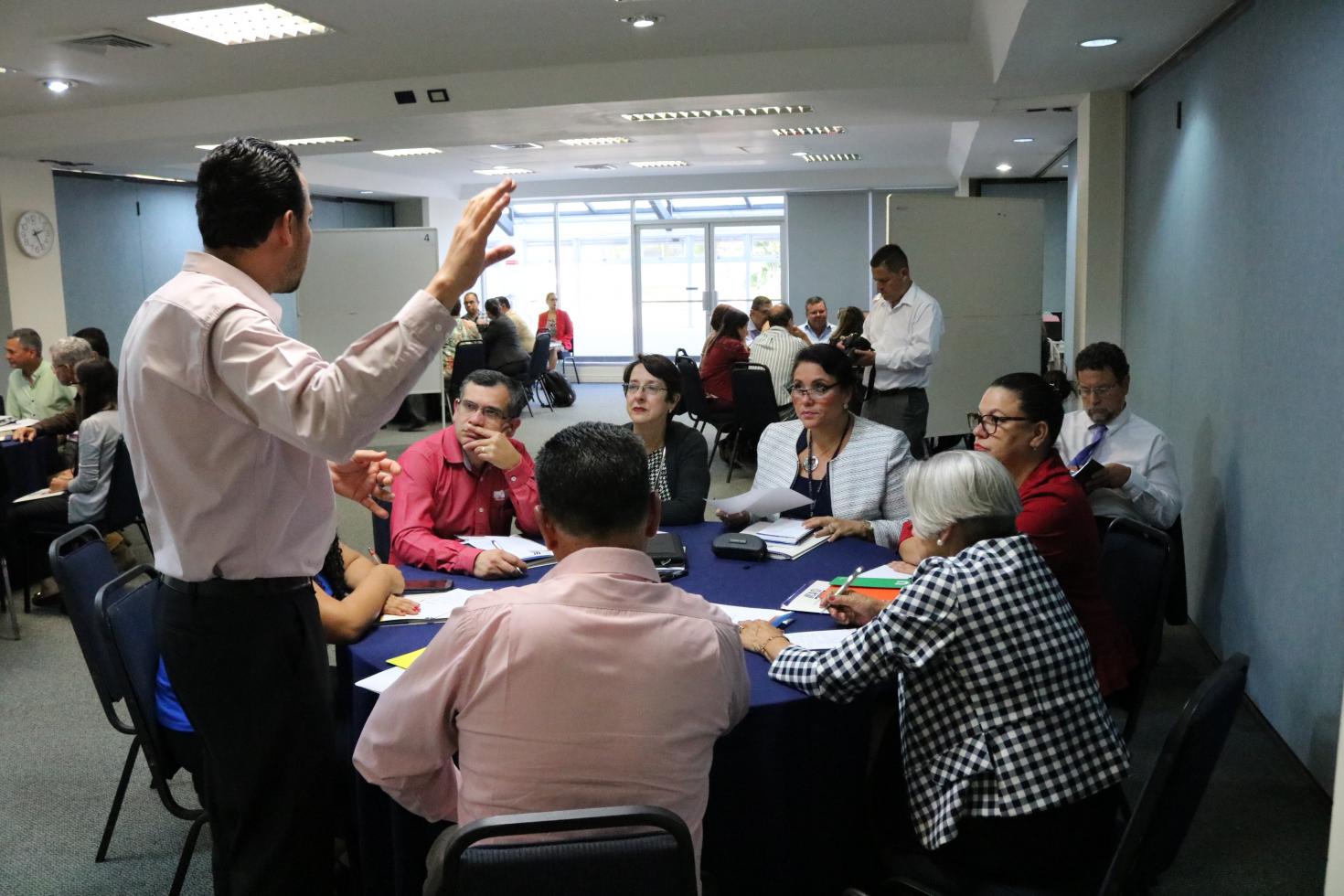Entities related to Costa Rica’s agriculture sector shared their technical viewpoints to enrich the document that will guide the Institute’s cooperation actions over the next four years.

San Jose, 28 February 2018 (IICA). A total of 21 entities related to Costa Rica’s agriculture sector met at the headquarters of the Inter-American Institute for Cooperation on Agriculture (IICA) to contribute to the preparation of its Medium-term Plan, which will guide the work conducted by this international organization for the benefit of local agriculture.
The meeting participants identified the main topics on which IICA’s work should focus, highlighting sustainable planning, management of agricultural chains, market access, food safety, development and innovation, risk management, area-based rural development, efficient use of natural resources, and climate change.
They also stated that, through networking, IICA could facilitate inter-institutional and sectoral coordination; develop support processes for project development, management, and monitoring; create capabilities; advise on institutional modernization processes; and support the preparation of comprehensive development plans, among other actions.
“The institutional framework in Costa Rica is highly developed, but there is still space to improve coordination; IICA could play a critical role in this process,” stated Marvin Chávez, Director of the Rural Development Fund of the Rural Development Institute (INDER) of Costa Rica.
Bernardo Jaén, Director of the National Animal Health Service (SENASA), agreed with Chávez, adding that IICA could also assist in linking Costa Rica to agriculture at the regional and continental levels.
The Director General of IICA, Manuel Otero, stated that the participants’ recommendations would be crucial in the development of a road map aimed at meeting country needs.
“When we understand the way our countries think and what their priorities are, we are able to efficiently target and distribute our resources, while working together to address national demands. This process guarantees IICA’s institutional strengthening moving forward,” he stated.
More than 35 representatives of public and private institutions, as well as the production and academic sectors, participated in the meeting.
This consultation process will be replicated in all other IICA Member States, to ensure that each country’s vision is taken into account in the preparation of national and regional plans. The results of the consultation process in Costa Rica will be presented to and validated by the Ministry of Agriculture and the National Agricultural Council (CAN).
More information:
Miguel Ángel Arvelo, Chief of Staff and IICA Representative in Costa Rica










